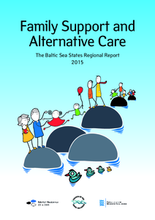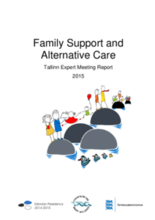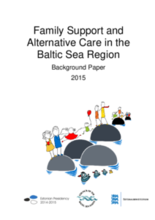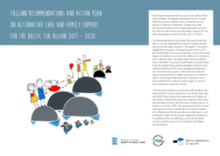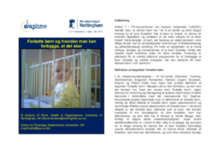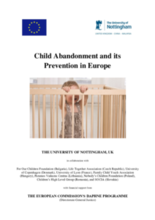Displaying 31 - 40 of 46
Meant to highlight the maxim that every child deserves the best that we all have to give; this book provides a review of the progress made since The UN Convention on the Rights of the Child. It contains reports from 21 countries on the status of the rights of the child. The countries are: Australia, Canada, Croatia, Denmark, France, Germany, Greece, India, Iran, Japan, Portugal, Romania, Scotland, Serbia, Solomon Islands, Spain, the Netherlands, the UK, the USA, Uzbekistan and Venezuela. There are no reports from Africa.
This article describes the experiences of Inuit children from Greenland who were removed from their families and taken to Denmark in the 1950s in an effort by the Danish government to re-educate them as “Little Danes” and to “modernize” Greenland.
This report was developed as part of a mapping study aimed at analysing the situation of alternative care and family support in the Baltic Sea Region, assessing the achievements since the 2005 Ministerial Forum and identifying relevant opportunities and challenges for the future.
This report provides an overview of the two-day expert meeting on alternative care and family support in the Baltic Sea Region that took place in Tallinn, Estonia in May 2015.
This background paper was developed as part of a regional study which gathered relevant data and information on family support and alternative care in the eleven Member States of the Council of the Baltic Sea States (CBSS).
Government representatives, experts and professionals from the Baltic Sea Region including Denmark, Estonia, Finland, Germany, Iceland, Latvia, Lithuania, Norway, Poland, the Russian Federation, Sweden and wider Europe gathered at a two-day expert meeting in Tallinn, Estonia and, together, endorsed a set of recommendations and action plan on alternative care and family support on 6 May 2015.
This protocol describes an ambitious experimental evaluation of a universal group based parenting support program, the Family Startup Program (FSP), currently implemented large scale in Denmark; an evaluation that has not yet been made either in Denmark or internationally.
The University of Copenhagen Department of Economics is conducting an externally funded research project on the effectiveness of interventions for children living in out-of-home care.
This document is a Danish language summary brochure of the Manual of Good Practice titled ‘Child Abandonment and its Prevention in Europe,’ specific to child abandonment in Denmark.
This comprehensive manual provides an overview of child abandonment and its prevention in Europe, exploring the extent of child abandonment, possible reasons behind this phenomenon, the consequences of abandonment, and good practices in terms of prevention. For the purposes of the EU Daphne-funded project, child abandonment is defined in two ways, namely open and secret abandonment. Country specific in-depth reviews of child abandonment and its prevention are provided for 10 countries and results from an EU-wide survey analyzed.

